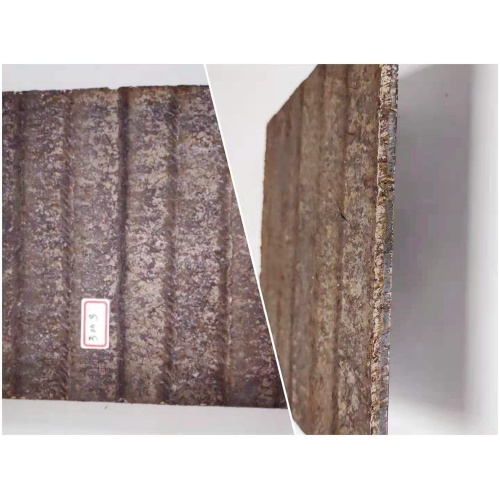
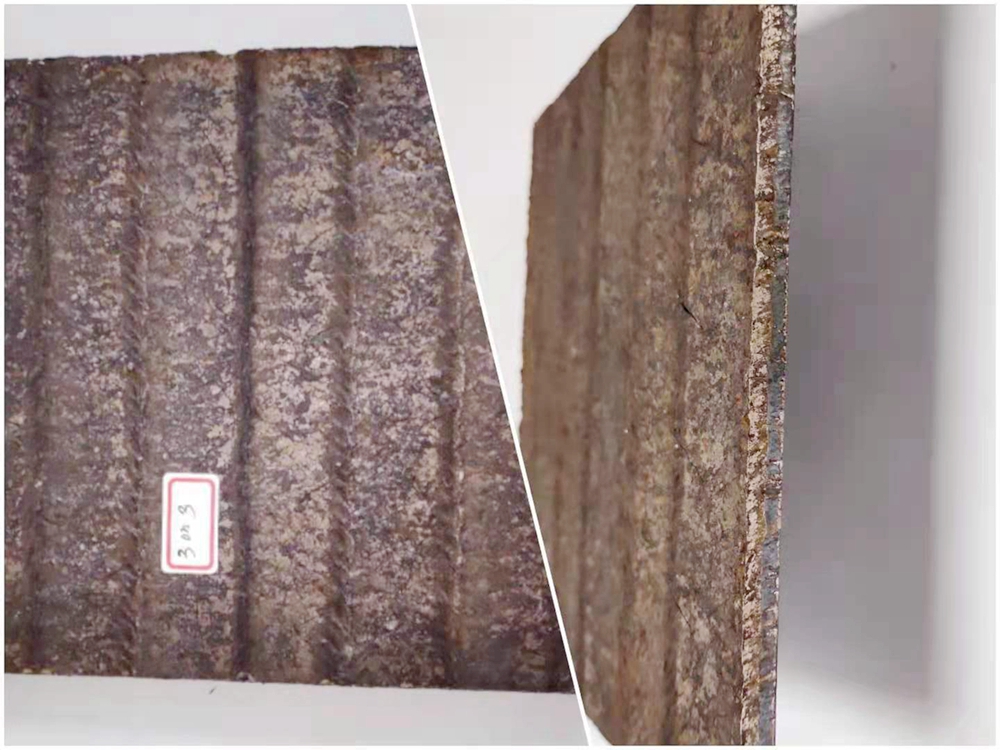


Payment Type:L/C,T/T,D/P,Paypal,Money Gram,Western Union
Incoterm:FOB,CFR,CIF,EXW,FCA,CPT,CIP
Min. Order:100 Kilogram
Transportation:Ocean,Land
Port:Shanghai,Tianjin,Qingdao
Model No.: Wear Plate-HP700
Brand: HP Plate, HP Welding
Packaging: Steel frame & steel belt fastened
Transportation: Ocean,Land
Place of Origin: China
Supply Ability: 500 tons per year
Certificate: ISO9001: 2015
HS Code: 72109000000
Port: Shanghai,Tianjin,Qingdao
Payment Type: L/C,T/T,D/P,Paypal,Money Gram,Western Union
Incoterm: FOB,CFR,CIF,EXW,FCA,CPT,CIP
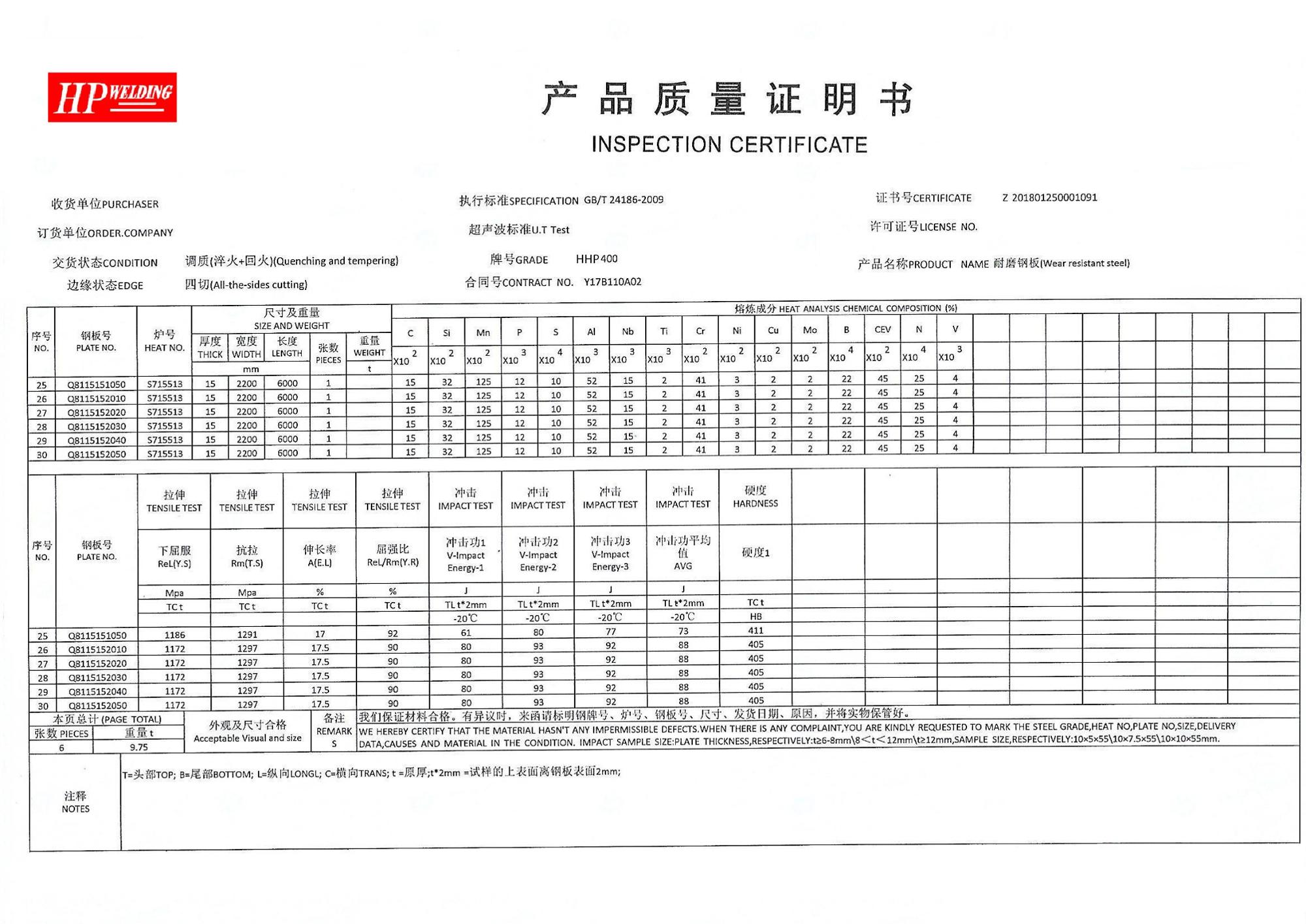
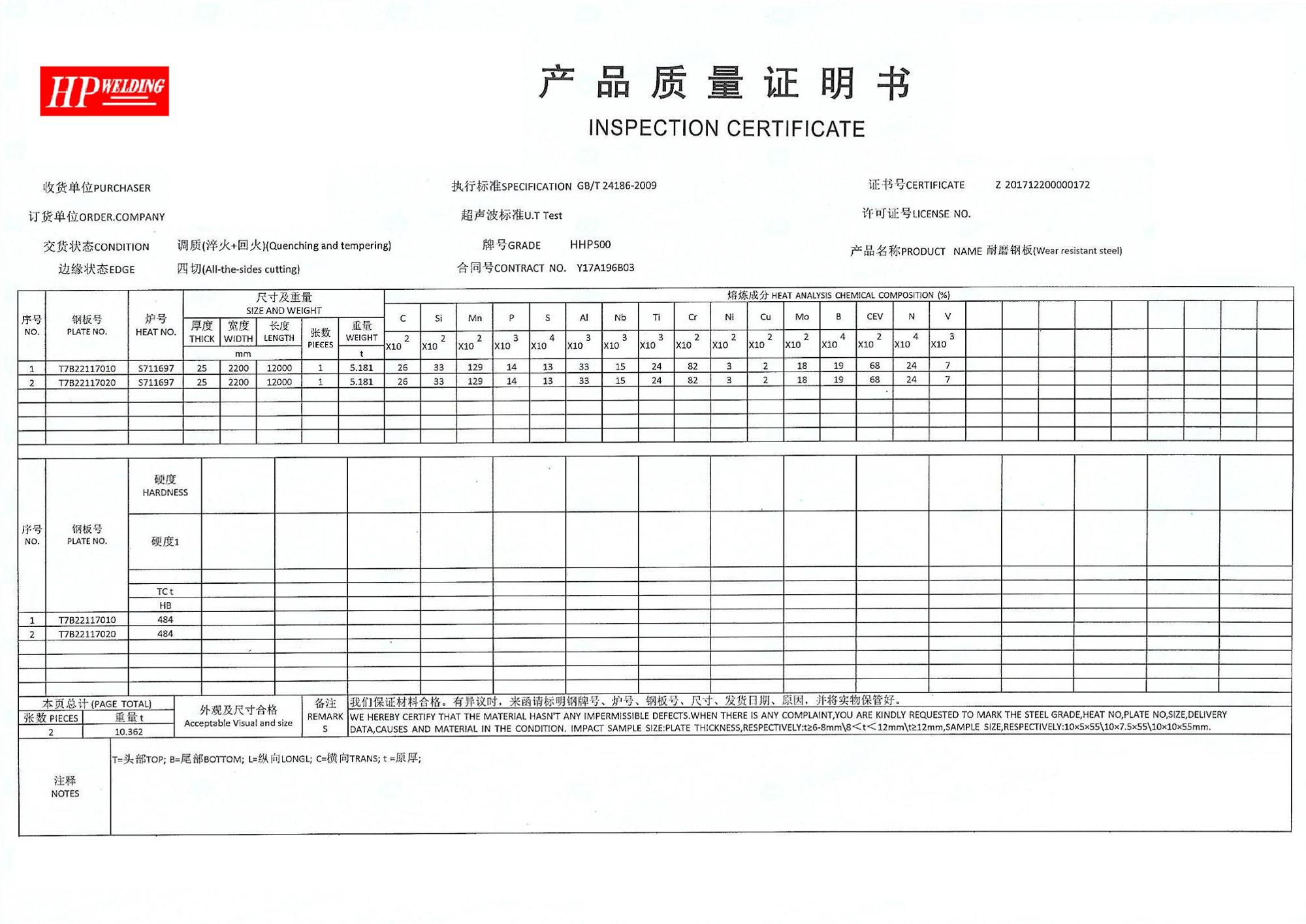
HP Plate (Huifeng Wear Resistant Industry Co., Ltd.) was founded in 1994, as the former Taiwan's Upking-Kurimoto Ltd., led by the president Mr. Zhang Kun-Mou. Using the world-famous Japanese KURIMOTO hardfacing welding patented technology, with welding materials produced by Vautid GmbH, HP Plate has become the most successful experts specializing in production and sales of hardfacing welding overlay plates.
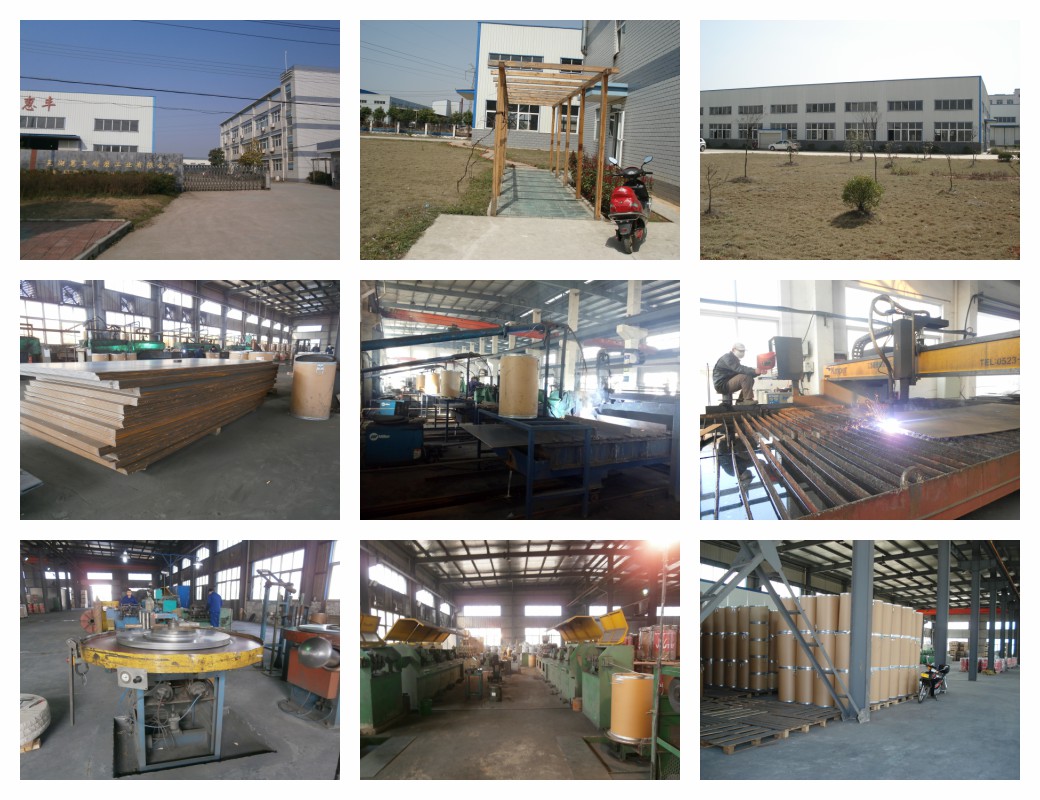
HP Product Range:
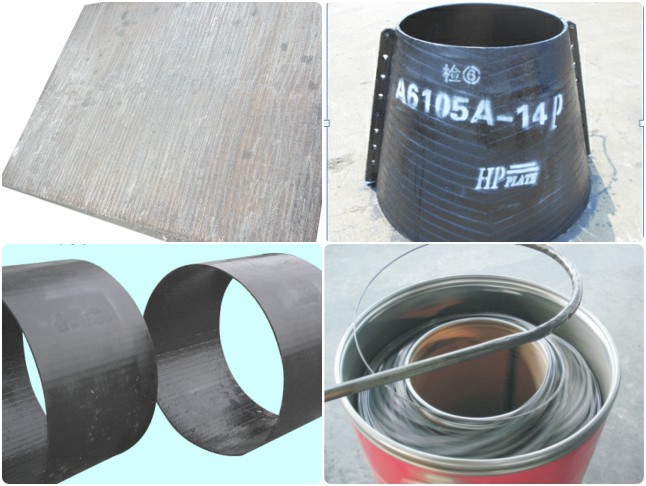
HP Laboratory

HP Certification:
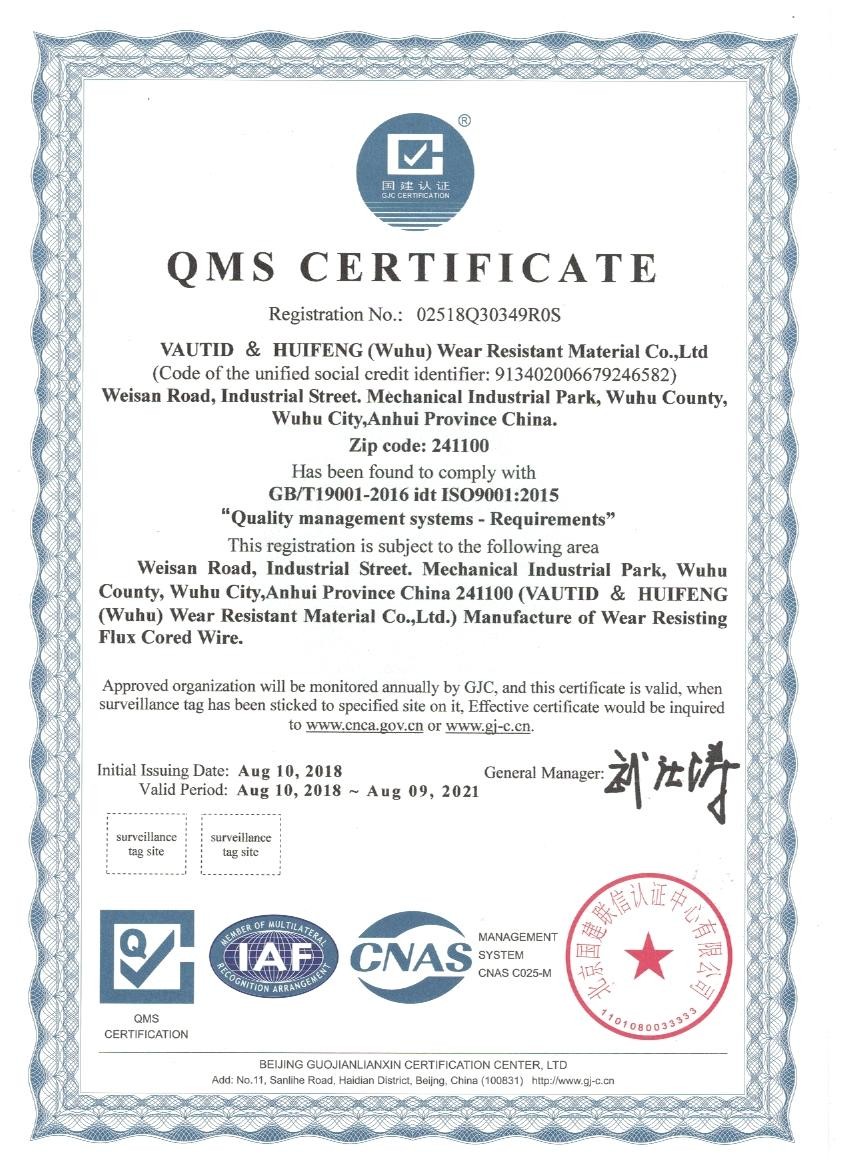
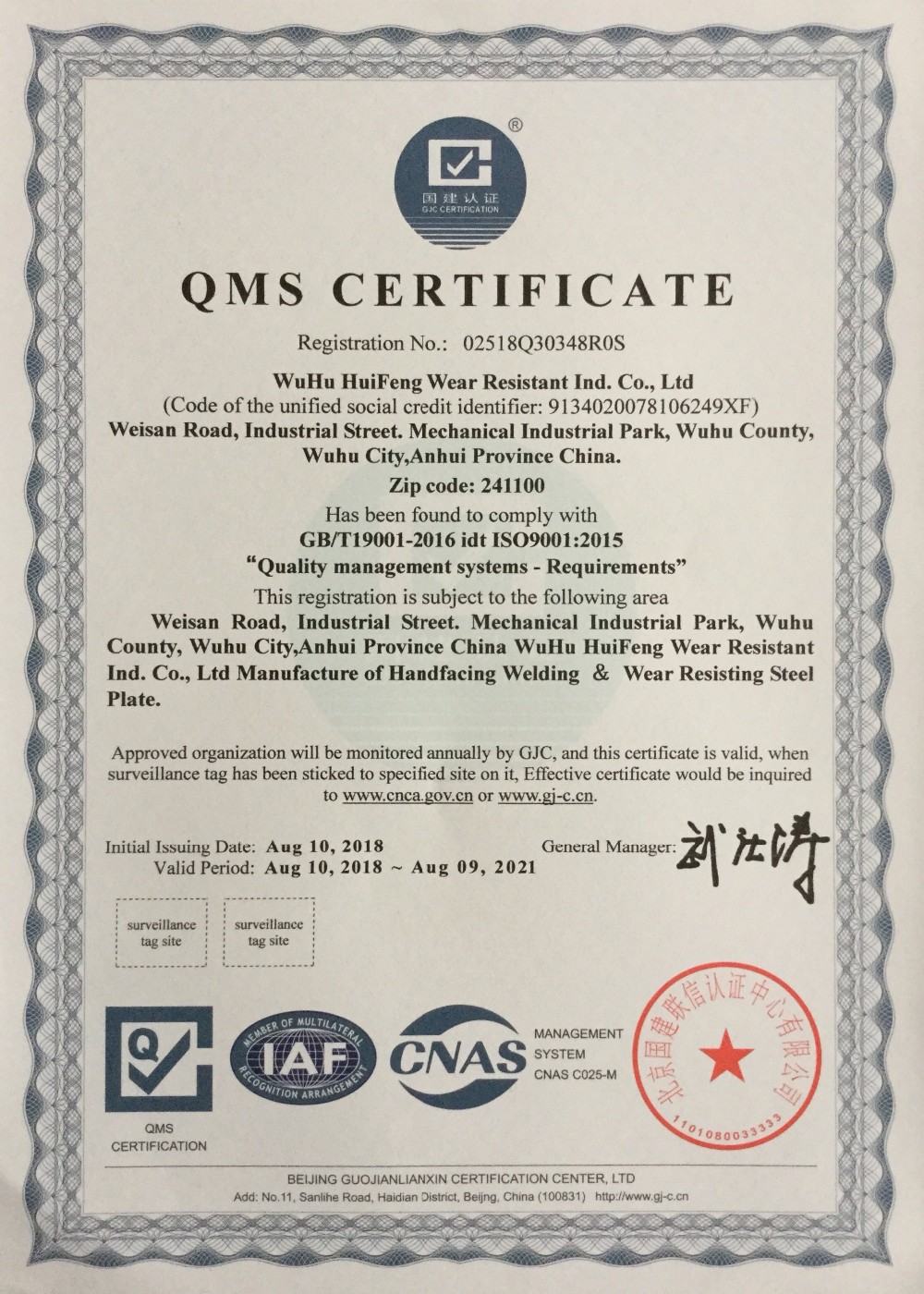
Comparison_HP Plate vs Other Plate
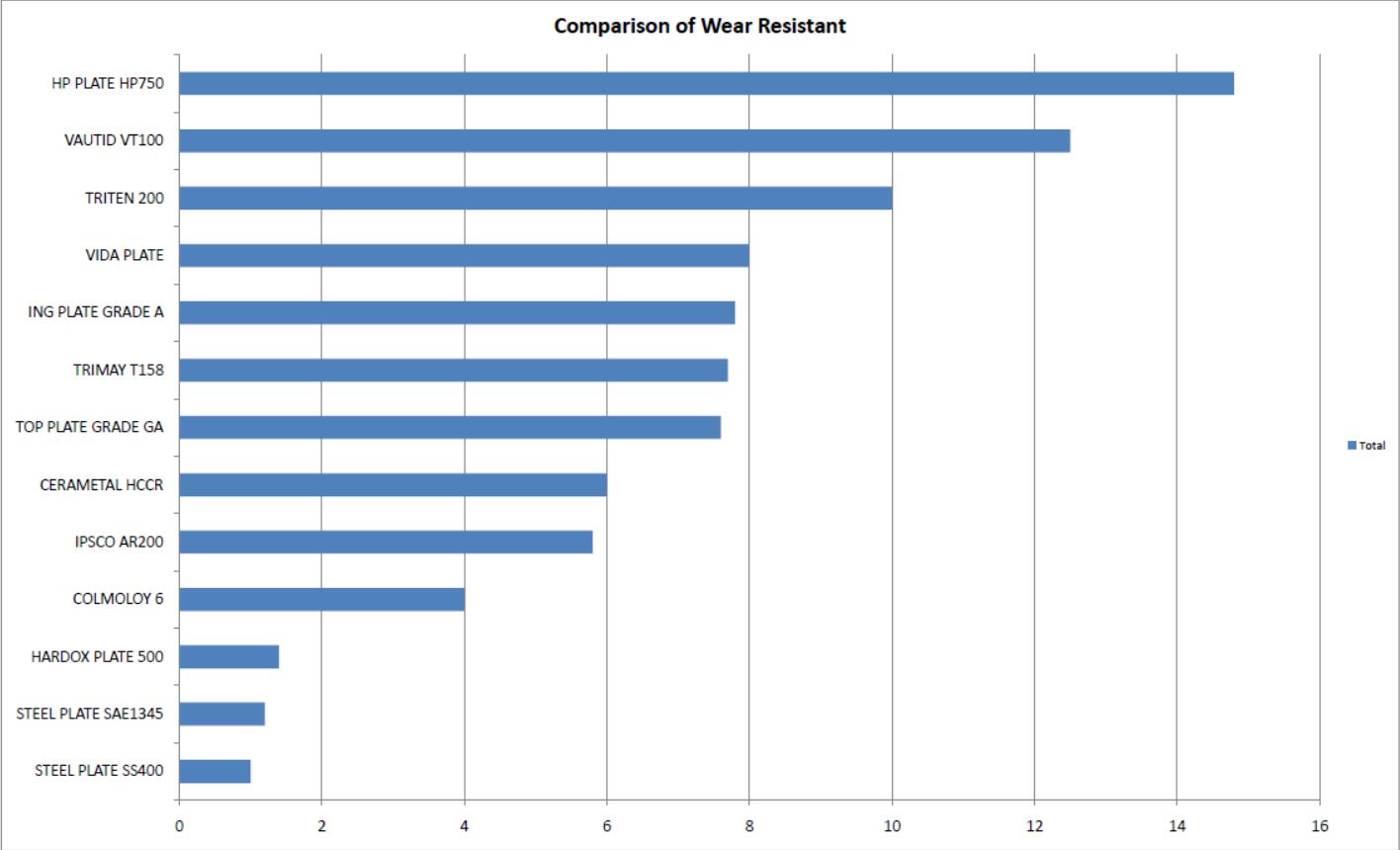
Contact us:

1) Wear Resistant Plate & Hardfacing Pipe
2) Fabriction parts including Liner, Dredging Pipe & other customised parts
4) Vertical Mill Components (Rollers & Table Liners)
5) HP Wear Plate & Hardfacing Pipe
6) HP Wear Parts
7) Flux Cored Wire & Welding Recondition